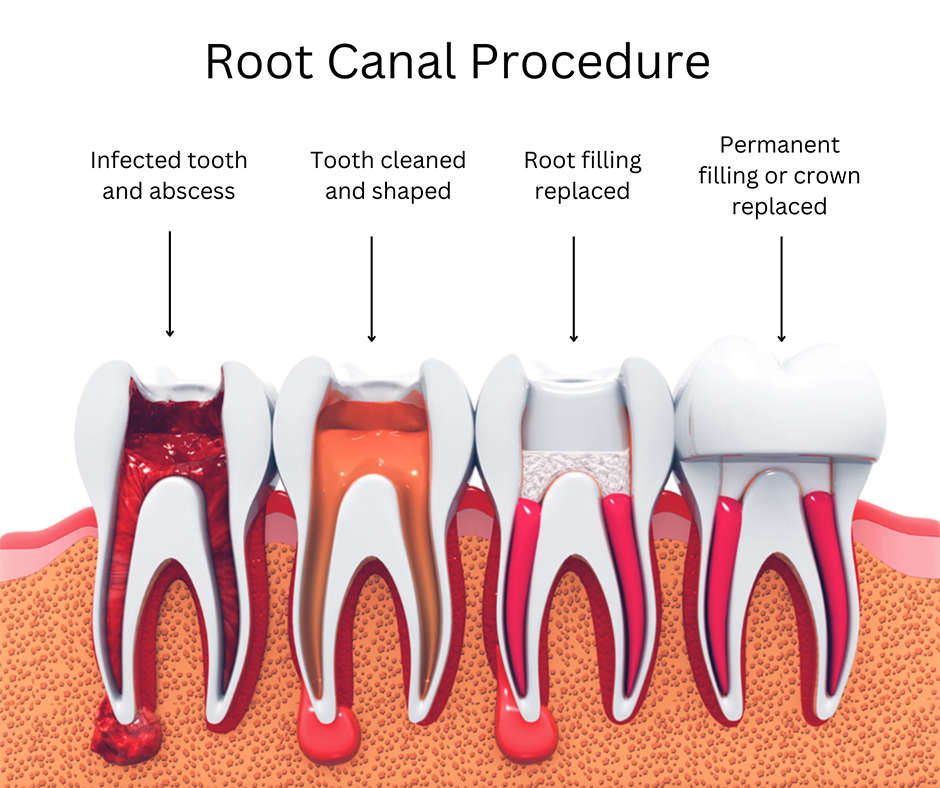Root canal

Root canal treatment, also known as endodontic therapy, is a dental procedure used to treat infection or damage within the pulp of a tooth. The pulp is the soft tissue inside the tooth that contains nerves, blood vessels, and connective tissue. When the pulp becomes infected or inflamed, typically due to deep decay, cracks, or trauma, it can cause severe pain and lead to abscess formation if left untreated.
Root canal treatment involves the following steps:
- 1. Diagnosis:
The dentist examines the tooth and may take X-rays to determine the extent of the infection or damage.
- 2. Anesthesia:
Local anesthesia is administered to numb the area around the affected tooth, ensuring that the patient remains comfortable throughout the procedure
- 3. Access:
The dentist creates an opening in the crown of the tooth to access the pulp chamber and root canals.
- 4. Cleaning and Shaping:
Using small instruments called files, the dentist removes the infected or damaged pulp tissue from the pulp chamber and root canals. The canals are then cleaned and shaped to prepare them for filling.
- 5. Filling:
After cleaning and shaping the canals, they are filled with a biocompatible material called gutta-percha to seal them and prevent recontamination.
- 6. Restoration:
Once the root canal treatment is complete, the tooth is typically restored with a filling or crown to strengthen it and restore its function and appearance.
Root canal treatment effectively removes the source of infection or inflammation, alleviating pain and saving the natural tooth from extraction. With proper care, a tooth that has undergone root canal treatment can last a lifetime.
While root canal treatment has a reputation for being painful, advancements in dental techniques and anesthesia have made the procedure relatively comfortable for most patients. It's important to follow the dentist's instructions for post-treatment care to ensure optimal healing and long-term success.
FAQ
What is a root canal treatment?
Why might I need a root canal?
What happens during a root canal procedure?
Is a root canal painful?
How long does a root canal procedure take?
What are the benefits of a root canal?
How successful is root canal treatment?
Can I drive myself home after a root canal?
How should I care for my tooth after a root canal?
Are there alternatives to root canal treatment?
How much does a root canal cost in India?
Services
Dental services
know more about your treatment , symptons , procedure , costs and FAQ's.